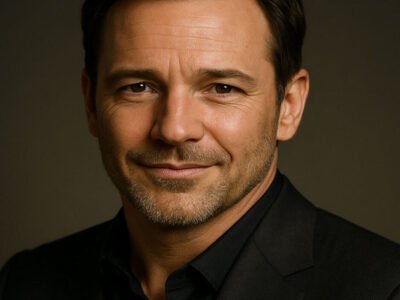Discover why the Scream franchise continues to captivate horror fans worldwide with its unique blend of terror, humor, and intelligent commentary on the genre itself.
The Ghostface Phenomenon
The Scream franchise has carved out a distinctive niche within the horror genre, celebrated for its sharp wit, profound self-awareness, and relentless suspense. Since its electrifying debut in 1996, this series has consistently captivated audiences by both embracing and cleverly subverting the very tropes that define slasher films.
It masterfully blends thrilling scares with intelligent commentary on horror cinema itself. This innovative dual approach not only revitalized a genre that was arguably growing stale but also forged a lasting cultural footprint, continuing to resonate deeply with fans and inspire new filmmakers.
At its heart, the enduring appeal of Scream movies stems from their groundbreaking meta-commentary and character-driven narratives. These elements collectively redefined the slasher genre for a new era, inviting viewers to become part of the cinematic conversation, which in turn made the terror even more visceral when the established rules were inevitably shattered.
Deconstructing the Slasher: Scream’s Meta-Narrative
The groundbreaking approach of Scream can largely be credited to the visionary collaboration between director Wes Craven and screenwriter Kevin Williamson. Their combined talents didn’t just create a film; they forged a cinematic experience that was simultaneously a loving homage to horror and a sharp critique of its conventions.
Scream masterfully utilized self-awareness, featuring characters who openly discussed the established rules and clichés of horror films. This meta-narrative brilliantly allowed the franchise to subvert audience expectations, keeping them on the edge of their seats and constantly questioning their preconceived notions about slasher movies.
Pop culture references were seamlessly woven throughout the narrative, ranging from subtle nods to iconic horror films to more overt contemporary societal observations. This clever integration not only injected layers of humor and relatability but also underscored the film’s self-referential nature, positioning it as much a commentary on the genre as a standout entry within it.
The Evolution of the Franchise: From Woodsboro to New York
Throughout its impressive run, the Scream franchise has consistently demonstrated a remarkable capacity for evolution. Each new installment not only built upon its predecessors but also offered fresh, compelling perspectives. The narrative scope expanded from the familiar suburban terror of Woodsboro to the vibrant, chaotic streets of New York City, yet the foundational elements of suspense and mystery have always remained steadfast.
Films like Scream 2 and Scream 4 stand out for their insightful commentary on sequel culture and the burgeoning reboot phenomenon, respectively. These particular entries brilliantly showcased the franchise’s unique ability to adapt and reflect the ever-changing landscape of popular culture and the horror genre itself.
The enduring journey of core characters such as Sidney Prescott, Gale Weathers, and Dewey Riley has been absolutely central to the series’ remarkable longevity. Their individual growth, unwavering resilience, and intricately woven relationships have consistently provided a crucial emotional anchor amidst the unfolding chaos, allowing audiences to deeply invest in their ongoing struggle for survival.
And, of course, the identity of Ghostface, the franchise’s iconic masked killer, has always been the ultimate, pivotal mystery. The constantly shifting motivations and the thrilling reveal of new antagonists in each film have kept the narrative perpetually fresh, ensuring that the threat felt both eerily familiar and terrifyingly unpredictable.
Psychological Depth and Social Commentary
Beyond the exhilarating chases and chilling gruesome kills, Scream plunges into profound psychological depths, meticulously exploring themes of trauma, identity, and the relentless struggle for survival. Sidney Prescott’s journey, in particular, stands out as a powerful and deeply human narrative of a survivor continually confronting her past and the haunting specter of violence.
Moreover, the Scream movies franchise consistently serves as a potent vehicle for incisive social commentary. It often critiques media sensationalism, the sometimes-obsessive nature of fandom, and even toxic masculinity. The motivations behind each Ghostface killer frequently mirror broader societal anxieties, allowing the horror to resonate on a much deeper, more intellectual level than typical slasher fare.
These astute observations are precisely what ensure Scream‘s enduring relevance. Its critiques of popular culture and fundamental human nature remain strikingly pertinent even today. The films cleverly leverage the slasher format to hold a mirror up to society, subtly prompting viewers to reflect on the darker facets of human behavior and the pervasive influence of media consumption.
Impact and Legacy on the Horror Genre
Scream burst onto the cinematic scene in the mid-1990s, almost single-handedly revitalizing the slasher film genre, which had undeniably grown stale with formulaic entries. Its brilliantly self-aware script and clever deconstruction of established horror tropes injected vibrant new life into a subgenre many had prematurely declared dead.
The resounding success of Scream inevitably spawned a wave of imitators and, more importantly, inspired a new generation of horror filmmakers to boldly experiment with meta-narratives and genre subversion. It definitively proved that horror could be both genuinely terrifying and intellectually stimulating, profoundly influencing countless films and television series that followed in its wake.
Today, Scream stands as an undeniable cultural touchstone, a definitive benchmark for meta-horror that continues to be celebrated for its innovation and lasting impact. Its enduring legacy isn’t merely found in its ability to deliver scares, but rather in its smart, satirical approach that forever altered how audiences and creators perceive the horror genre.
Why Scream Continues to Terrify and Fascinate
In summary, the Scream franchise has undeniably cemented its prominent place in cinematic history. This is largely due to its unparalleled blend of suspense, sharp humor, and incisive meta-commentary. It has consistently delivered thrilling narratives while simultaneously dissecting the very mechanics of horror storytelling with remarkable precision.
The lasting cultural significance of Scream movies stems from their impressive ability to evolve, their cast of truly memorable characters, and their insightful social observations. Scream remains a compelling and vibrant example of how a horror series can be both profoundly entertaining and intellectually stimulating, maintaining an unyielding grip on the collective imagination of its audience.
As new generations continue to discover the iconic masked killer, Ghostface, and the intricate, often deadly, rules of survival, Scream persistently manages to terrify and fascinate. Its enduring appeal ensures that its legacy will not only persist but will continue to influence the horror genre for many years to come, serving as a chilling reminder that sometimes, the call truly is coming from inside the house.













